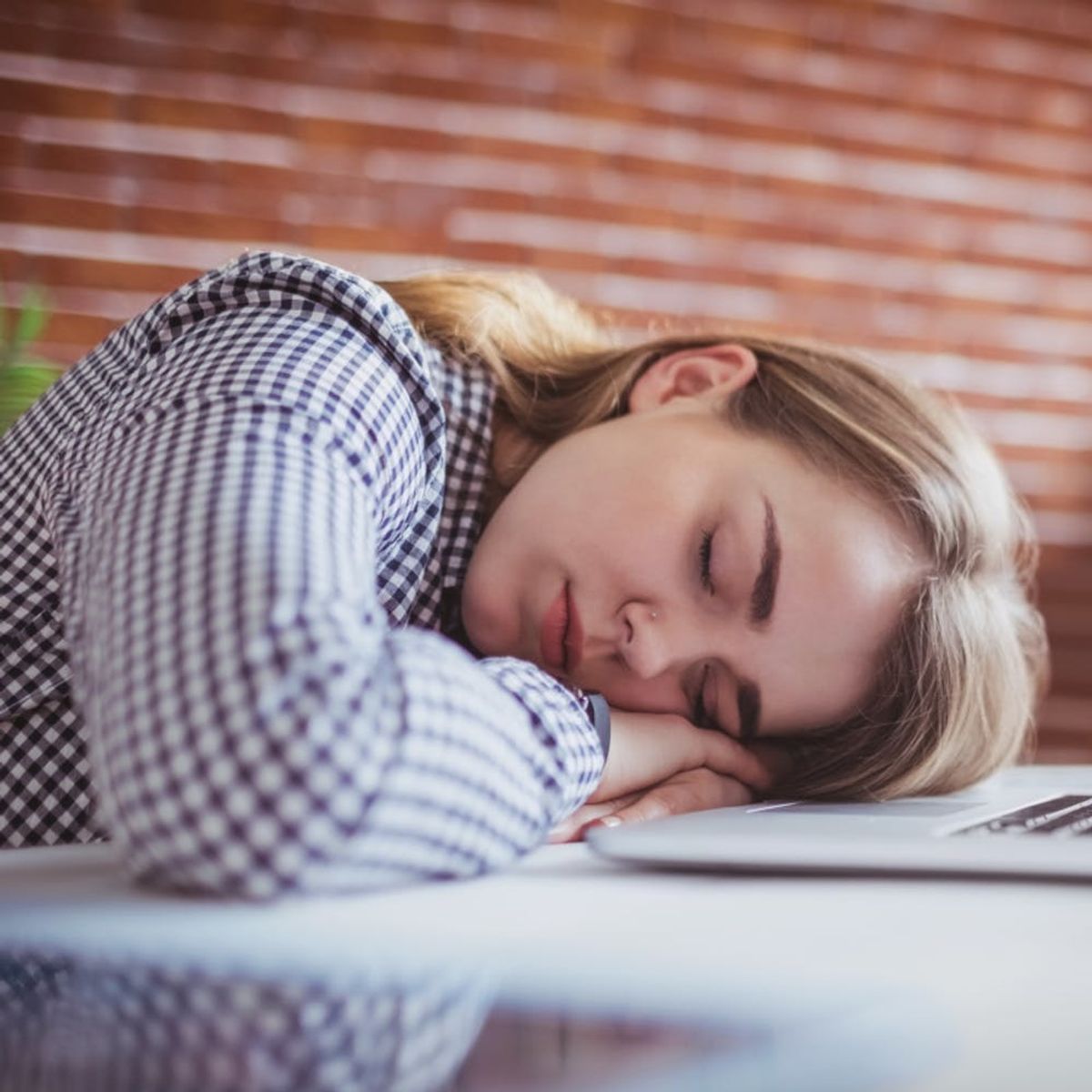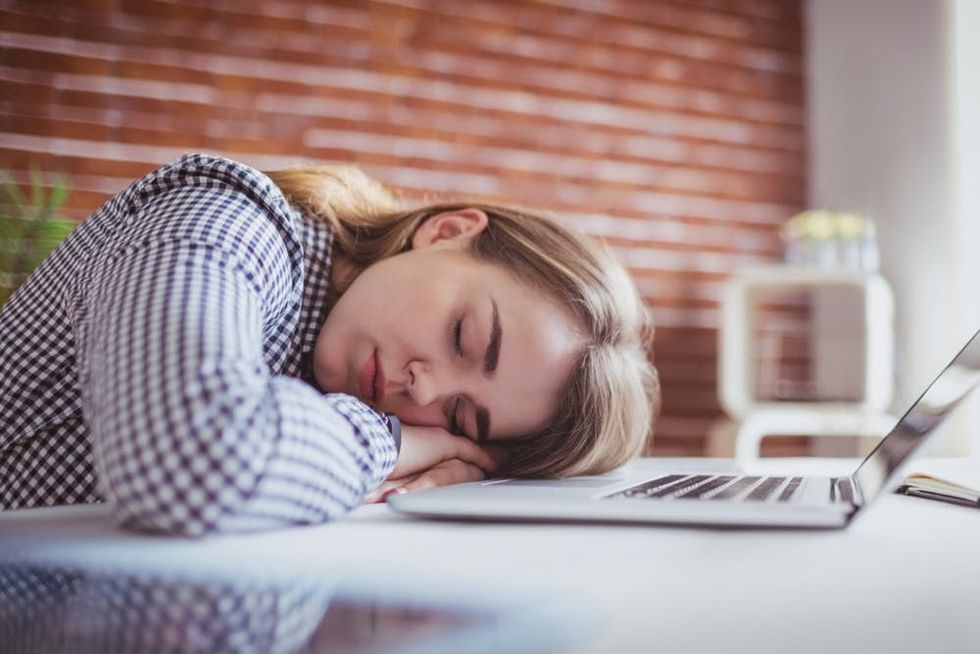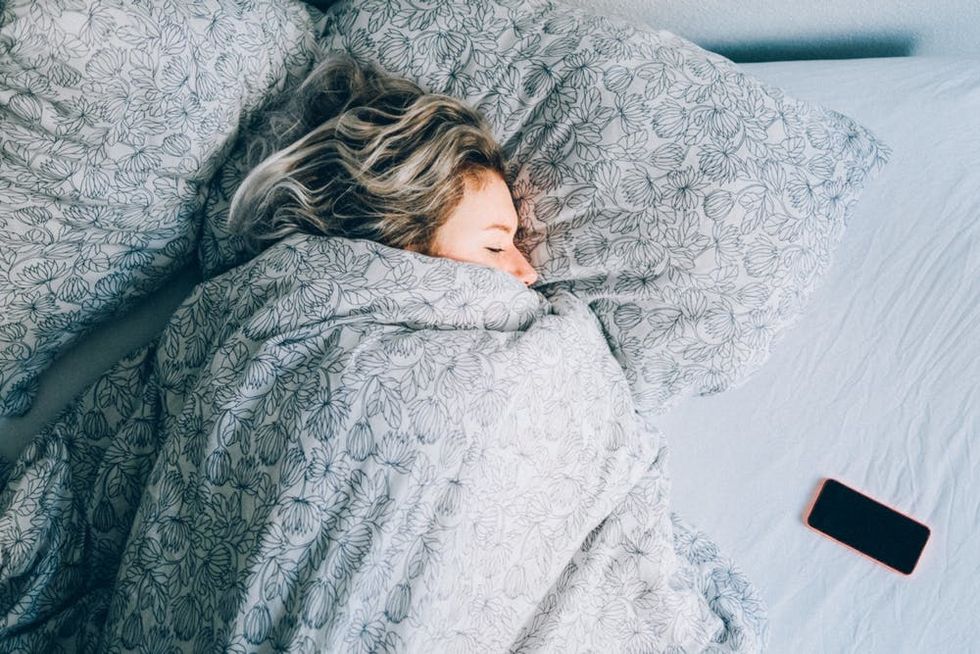They do WHAT in Japan?
9 Sleep Habits Around the World That Could Help You Catch a Few More Zzz’s

They say what happens in the bedroom stays in the bedroom, but when it comes to sleep, there’s a lot we could learn from other people’s habits — especially people in different cultures. If you’ve ever traveled abroad, you may have seen firsthand how different getting your nightly shut-eye can look in another country. And though some foreign bedtime rituals may initially strike us as a bit odd, it’s quite possible that trying one (or several!) of them could result in a better night’s sleep, so here are nine new sleep habits around the world.

1. Japan: Nap on the job. In Japanese culture, falling asleep at work, on public transit, or even at a dinner party is considered totally legit. The idea goes that you must be working so diligently that you’ve exhausted yourself — so instead of being perceived as disrespectful, you might even be lauded for your industriousness. Dozing off in public is such a common practice that it even has its own term: inemuri, which literally means “sleeping while present.” While it may not be acceptable in American culture to conk out mid-meeting or over dessert with friends, we could all stand to work in more naps.
2. Spain: Take an afternoon siesta. Speaking of naps, the siesta has long been a quintessential tradition of Spanish culture. Though this afternoon rest break may be waning in popularity as Spain becomes more urbanized, its benefits remain. When kept relatively short — under 90 minutes — power naps increase performance and reaction time and improve mood.
3. China: Sleep on a firm bed. In China, it’s a popular belief that a firm bed supports the alignment of the back, promoting better sleep. (Even in the US, many people swear by sleeping on a harder surface to ease back pain.) To find out firsthand if firmer support could lead to better nights, check out Brooklyn Bedding’s Plank, the mattress “for sleepers who can never find a mattress firm enough.”
4. United Kingdom: Snooze in the nude. Could sleeping in the buff be the key to waking up refreshed? A significant portion of Brits believes so. When surveyed as part of 2013 International Bedroom Poll conducted by the National Sleep Foundation (NSF), 30 percent of people in the UK said they go to bed in their birthday suits (as opposed to just 12 percent of Americans). Since reduced body temperature signals to your brain that it’s time to rest, ditching the PJs could truly make a difference for quality and quantity of sleep.

5. Europe: Trade the top sheet for a duvet. If you’re not into sleeping nude — ‘cause that can definitely get awkward fast if you have kids or roommates — Europeans have another cooling method worth considering. It’s extremely common in Europe to sleep with just a duvet with a removable, washable cover, rather than the top sheet and comforter most Americans use: Eliminating that layer of cloth helps keep the temperature down in bed.
6. Belgium: Be early to bed and early to rise.Time reports that Belgian women have the distinction of going to bed earliest of all countries they surveyed. Apparently, this is a healthy habit: People who turn in earlier show a lower risk of early death than night owls, and they may be more likely to maintain a healthy weight.
7. Japan: Sleep solo. The NSF survey found that less than two-thirds of Japanese people who are married or living with a partner sleep together, and more than a quarter sleep entirely alone (not even sharing with pets or kids). If you have a loved one to snuggle with, sleeping in separate beds may sound like a throwback from 1950s TV shows, but research shows the Japanese may be on to something. Over a quarter of people report getting a more restful night when they turn in alone (and that percentage is even higher for women).
8. Mexico: Engage in some late-night mindfulness. Nightly wind-down rituals — whether prayer, meditation, or quietly reading a book — are all part of healthy sleep hygiene. Working in a few moments of peaceful pre-bedtime reflection, like nearly two-thirds of Mexicans surveyed by the NSF do by meditating or praying, might help you drift off more easily.
9. Netherlands: Add a few extra minutes. And the award for most sleep goes to… the Netherlands! According to a 2016 study in the journal Science Advances, the Dutch outrank all other countries, averaging eight hours and five minutes per night. (The Americans clock in at seven hours and 52 minutes, a difference of close to a quarter-hour.) While the gap between Dutch and American may not seem that large, given that more sleep is associated with more mental agility, improved immunity, and better mental health, getting just a few minutes of extra sleep per night can add up to major benefits. So take a few pointers from other cultures’ sleep habits and get yourself to bed!
RELATED: 5 Tricks You Can Pull on Your Brain to Fall Asleep Faster
(Photos via Getty)



















